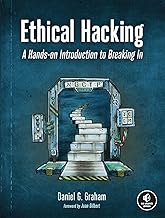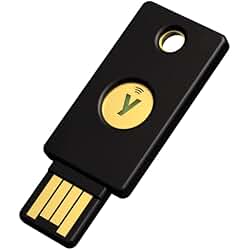The 5 Best Cybersecurity Courses Online to Start Your Journey (With Free Options)
Introduction
In today’s digital age, cybersecurity skills are in high demand. With companies of all sizes working to protect sensitive data, there’s a constant need for trained cybersecurity professionals who understand how to defend against cyber threats. If you’re looking to enter this growing field or want to enhance your knowledge, choosing the right course is essential. This guide reviews the top five cybersecurity courses available online, each offering unique benefits, along with two free options for beginners.
Each course listed here provides practical, hands-on learning and industry-recognized certifications to help you secure a place in the cybersecurity industry. Whether you’re aiming to advance your IT career or begin a new journey in cybersecurity, these options offer the knowledge, skills, and credentials needed to succeed.
1. Certified Information Systems Security Professional (CISSP) – InfoSec

- Overview: The CISSP is a globally recognized certification designed for experienced professionals who want to specialize in advanced security practices. Offered by (insert platform), this course dives deep into the eight domains required for the CISSP exam.
- Who It’s For: Ideal for IT professionals with experience in information security, looking to validate their skills at an advanced level.
- What You’ll Learn: The CISSP course covers security and risk management, asset security, software development security, and more. These topics provide comprehensive knowledge needed for senior-level cybersecurity roles.
- Course Structure: Divided into modules based on the eight CISSP domains, the course includes videos, case studies, and practice exams, culminating in a full-length CISSP practice test.
- Pros: High industry recognition, potential for career advancement, and access to exclusive CISSP networking groups.
- Cons: Recommended for those with prior experience; not ideal for complete beginners.
- How to Enroll and Cost: Accessible through [Platform], the course typically costs $500–$1,000. Many providers offer payment plans, which make it easier to invest in the program.
- Personal Take: As one of the highest-regarded certifications in cybersecurity, the CISSP provides rigorous training and is well worth the investment for experienced IT professionals.
2. Cybersecurity Specialization – University of Maryland on Coursera

- Overview: This Coursera specialization provides a beginner-friendly path into cybersecurity, covering foundational areas such as cryptography, hardware security, and cybersecurity risk management.
- Who It’s For: Perfect for beginners interested in cybersecurity basics who want a structured, university-backed course.
- What You’ll Learn: This specialization spans four courses, teaching core cybersecurity principles and hands-on skills in topics like network security, cryptographic tools, and defensive measures.
- Course Structure: The specialization is project-based, allowing you to apply your knowledge in real-world scenarios. It also includes a final capstone project that serves as a portfolio piece.
- Pros: University-quality instruction, structured progression from basics to intermediate concepts, flexible online learning.
- Cons: Monthly Coursera subscription required, with costs depending on the time it takes to complete.
- How to Enroll and Cost: Available on Coursera; start with a free trial, then subscribe at $39–$79/month.
- Personal Take: This specialization offers a clear path for beginners, making cybersecurity accessible while providing hands-on experience through projects.
3. Google Cybersecurity Professional Certificate – Google on Coursera

- Overview: Google’s Professional Certificate in cybersecurity offers a comprehensive introduction, covering everything from threat identification to ethical hacking techniques.
- Who It’s For: This certificate is geared toward beginners who want a career-focused introduction to cybersecurity.
- What You’ll Learn: The course teaches network defense, ethical hacking basics, and techniques to mitigate cyber threats. Google also provides resume-building and interview preparation resources.
- Course Structure: Structured as a series of modules with assessments, practical labs, and industry-relevant exercises.
- Pros: Google-backed credibility, practical labs, focus on job readiness, flexible learning schedule.
- Cons: Monthly Coursera subscription required.
- How to Enroll and Cost: Available on Coursera for approximately $39–$49/month.
- Personal Take: Google’s career-focused program stands out for its combination of practical skills, industry insights, and job-readiness resources, making it ideal for newcomers.
4. Introduction to Cyber Security Specialization – NYU on edX

- Overview: This edX specialization from NYU provides a foundation in cybersecurity, ideal for beginners looking for a university-backed course.
- Who It’s For: Beginners interested in core cybersecurity principles with a preference for an academic-backed course.
- What You’ll Learn: Topics include secure networking, cryptography basics, and an understanding of various cybersecurity threats. The course also includes a capstone project.
- Course Structure: It’s divided into four courses, each focusing on specific areas of cybersecurity and culminating in a hands-on capstone project.
- Pros: Trusted academic institution, comprehensive introduction, and final capstone for real-world application.
- Cons: Free to audit but costs around $400 for certification.
- How to Enroll and Cost: Available on edX with free audit access or a paid certificate option.
- Personal Take: The structure and depth make this specialization an excellent starting point for those who value academic rigor in their cybersecurity education.
5. CompTIA Security+ Certification Prep – Udemy

- Overview: The CompTIA Security+ certification is a foundational credential for entry-level cybersecurity roles, and this Udemy course prepares students for the Security+ exam.
- Who It’s For: Great for beginners who want a recognized entry-level certification to boost employability.
- What You’ll Learn: Covers essential security principles, including network security, risk management, and identity management.
- Course Structure: Composed of video lectures, quizzes, and practice exams. It focuses on the key areas of the Security+ exam.
- Pros: Affordable, lifetime access, ideal for those needing flexible self-paced study.
- Cons: Lacks the depth of a full-length cybersecurity program.
- How to Enroll and Cost: Available on Udemy, often on sale for $20–$100.
- Personal Take: This course provides solid exam prep for the Security+ certification, making it a good option for those looking to get a quick start in cybersecurity.
Two Free Options for Cybersecurity Beginners
1. Introduction to Cyber Security – University of Washington on edX

- Overview: A free introductory course covering essential cybersecurity concepts, perfect for those looking to learn foundational skills at no cost.
- What You’ll Learn: Topics include basic data protection, network security, and general cybersecurity principles.
- How to Enroll: Available on edX; choose the audit option for free access.
- Personal Take: This is a perfect introduction for anyone curious about cybersecurity, offering a high-quality education without a financial commitment.
2. Cybersecurity Essentials – Cisco Networking Academy

- Overview: Cisco offers a free introduction to cybersecurity basics, covering essential skills needed to secure networks and protect against threats.
- What You’ll Learn: Skills include identifying cyber threats, network security principles, and an introduction to malware and cybersecurity tools.
- How to Enroll: Register on Cisco Networking Academy’s website and enroll in Cybersecurity Essentials for free.
- Personal Take: Cisco’s program provides an excellent industry-aligned education for free, making it an ideal choice for anyone looking to get started.
Tools for Success in Cybersecurity Courses
To excel in cybersecurity courses, having the right tools can make a huge difference in understanding and applying concepts. Here are three items that can enhance your learning experience:

Ethical Hacking: A Hands-On Introduction to Breaking In
- Why You Need It: This book provides practical exercises for understanding key concepts like network security and cryptography. It’s a great supplement for anyone serious about hands-on learning in cybersecurity.
- Description: A valuable resource that explains complex topics in an accessible way, with exercises you can practice alongside your course.

- Why You Need It: Kali Linux is a popular operating system for cybersecurity students and professionals, designed for network security tasks like penetration testing.
- Link to Purchase: Kali Linux USB on Amazon
- Description: With a pre-configured USB stick, you can run Kali Linux directly from the USB without affecting your existing OS, providing a safe environment for learning cybersecurity techniques.

Wireshark Network Analysis Kit
- Why You Need It: Wireshark is an essential tool for learning network analysis, a key component of cybersecurity. This kit includes the necessary tools to understand network traffic and detect potential threats.
- Description: Includes materials and software to help you learn network analysis, allowing you to apply what you learn in a practical, hands-on way.
These tools are invaluable for students of cybersecurity, allowing you to go beyond theoretical learning and build hands-on experience.
How to Choose the Right Cybersecurity Course
- Consider Your Career Goals: Certifications like CISSP or CompTIA Security+ are ideal for those seeking formal roles in cybersecurity, whereas introductory courses may suit beginners.
- Check the Course Length and Schedule: Programs vary from a few weeks to several months. Choose one that aligns with your availability and learning speed.
- Review the Certification and Cost: Certifications can enhance employability, but some carry additional costs. Decide if a certificate aligns with your career goals.
Conclusion
Cybersecurity skills are in high demand, and these courses offer pathways for learners at all levels. From high-caliber certifications like CISSP to flexible options like Google’s Professional Certificate, each course can provide the knowledge and practical experience needed to thrive. For beginners, the free courses from edX and Cisco offer valuable insights without any financial commitment, making them a great place to start. As you build skills and pursue certifications, you’ll be on the path to a fulfilling career in cybersecurity.





Pingback: Exploring Google’s Cybersecurity Certificate: What You’ll Learn in Module 2 – Healthy Minds Journey